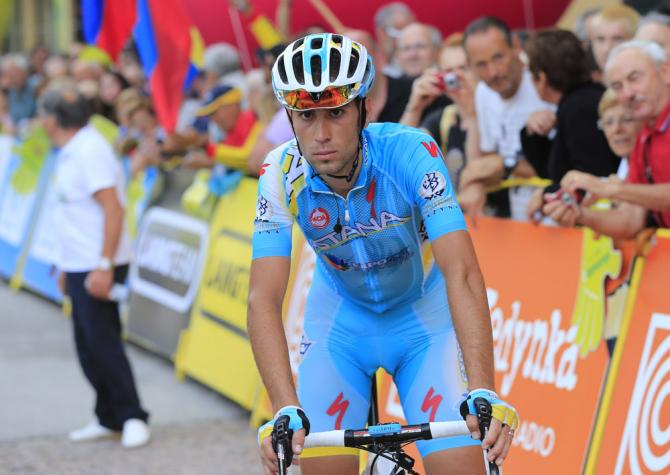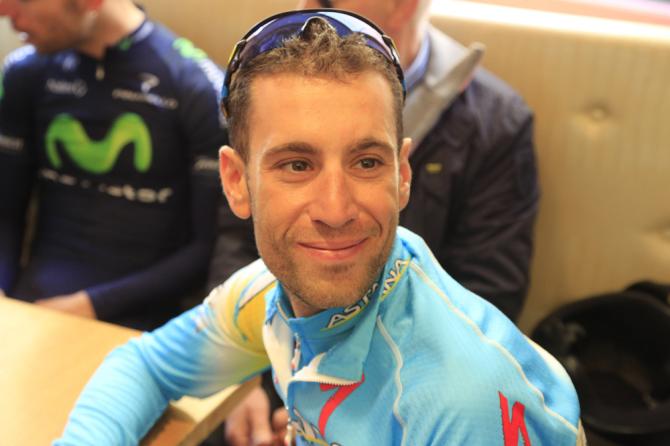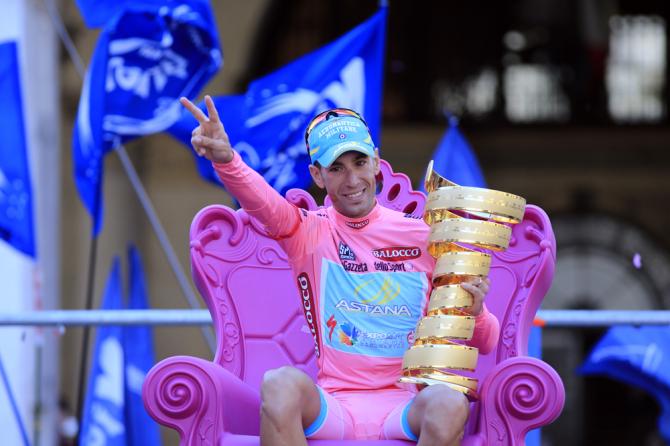Nibali: the Vuelta is never predictable
Italian favourite reflects on second Grand Tour challenge



If Chris Froome’s victory in the Tour de France was one that many cycling fans saw coming from a long way off, and Vincenzo Nibali’s win in the Giro was all but a foregone conclusion once Bradley Wiggins (Team Sky)’s victory bid collapsed, the Italian star warned that the Vuelta a España is a different kettle of fish altogether.
“The Vuelta is a hard race to say ‘this will happen’ or ‘this will happen’, because we’ve all ridden hard this season already,” Astana's Nibali - who nonetheless is tipped as the big favourite for overall victory in Madrid on September 15th – told Cyclingnews.
“I’ve done the Giro, and [top Spanish favourites] Alejandro [Valverde] and Joaquim [Rodriguez] have done the Tour, and your second peak of form in a season is always a bit shorter than the first. ”Nibali’s track record in Spain proves the 28-year-old Sicilian’s point. In 2010, after winning the Vuelta, he then rode it again in 2011 but was only able to finish seventh. And in 2013?
“I didn’t do so well in the Tour of Poland”- his first build-up race for the autumn, where he was 53rd overall - “but taking third in the Vuelta a Burgos was a good sign,” Nibali reasoned.
“I eased back a little after that, but I’ve come here feeling good and with a strong team. I’ll be taking it on the day by day, on the hunt for stage wins or the overall depending on how things go” - and whether his form will be as strong as he hopes.
This year’s Vuelta features an extremely difficult route, with 11 summit finishes, but Nibali told Cyclingnews that “is pretty much what we expected. They never make it easy, some of the climbs are very short” - such as the kilometre-long wall of Valdepeñas de Jaén on stage nine - “whilst others” - such as the Angliru on stage 20 - “are very difficult.”
On at least one of those stages, Nibali reasoned, most riders will have at least one bad day, as was his case in 2010 in Andorra when the Italian lost 23 seconds to stage winner Igor Anton, and at the grindingly steep ascent of Peña Cabarga, where he was dropped by Joaquim Rodriguez. Nibali took the race lead, but it was only because Anton had crashed out at the foot of the climb.
Get The Leadout Newsletter
The latest race content, interviews, features, reviews and expert buying guides, direct to your inbox!
Peña Cabarga, Andorra, Anton and Joaquim Rodriguez are all ingredients in the 2013 Vuelta mix, too. So too, is the Angliru, which Nibali knows from the 2011 Vuelta. “I have pretty good memories of it,” he says cautiously - and that year he finished a solid, if unremarkable, 15th at its summit, 2-37 down on stage and Vuelta winner Juan Jose Cobo.
“It’s kind of like the Zoncolan, but I wouldn't say it was more difficult. When I went up the Zoncolan the first time in the year that Di Luca won the Giro [2007], I did pretty well there, I got tenth [eleventh at 2-08 on Gilberto Simoni - Ed.] or something like that. As for the Angliru, when Cobo won, it wasn’t a good year for me in general.” Even so, 15th on Spain’s hardest climb is hardly a disaster.
He also knows the Peyragudes finish on stage 15 from the 2012 Tour de France when Alejandro Valverde (Movistar) won the Pyrenean stage. “It’s going to be another key stage, more than 200 kilometres long and should make a big difference.”
Given the toughness of the route and the unpredictable nature of riders’ form, it’s perhaps unsurprising that Nibali has a long list of potential rivals for overall victory in the Vuelta. Apart from the usual suspects like Rodriguez, Valverde and Samuel Sanchez (Euskaltel-Euskadi) he also includes Sergio Henao and Rigoberto Urán (Sky), Ivan Basso (Cannondale) and also Carlos Alberto Betancur (AG2R). Betancur was three times second in Giro stages, fifth overall and the Best Young Rider, but what was most memorable was that Betancur is an impulsive attacker - something Nibali agrees makes him appealing to fans.
But Nibali himself is the big favourite, something he sees as “normal. How I race here is important, too, for after the Vuelta, because people will be watching me for my form for the World’s.” And he does not deny that the World’s will be at the back of his mind during the Vuelta, with a definitive decision on how he will battle for the Vuelta GC only coming in the last week.
That was something that he did not have to think about three years ago when he was looking at the Vuelta as his single main objective for the autumn. “In 2010 it was very different, the World’s afterwards wasn’t an option because it was very flat and [Thor] Hushovd won,” he pointed out.
How the Vuelta plays out each day, then, will be something Nibali is not willing to predict - although for now, without a doubt, Nibali will be going into the race prepared to do battle from day one.
Alasdair Fotheringham has been reporting on cycling since 1991. He has covered every Tour de France since 1992 bar one, as well as numerous other bike races of all shapes and sizes, ranging from the Olympic Games in 2008 to the now sadly defunct Subida a Urkiola hill climb in Spain. As well as working for Cyclingnews, he has also written for The Independent, The Guardian, ProCycling, The Express and Reuters.
